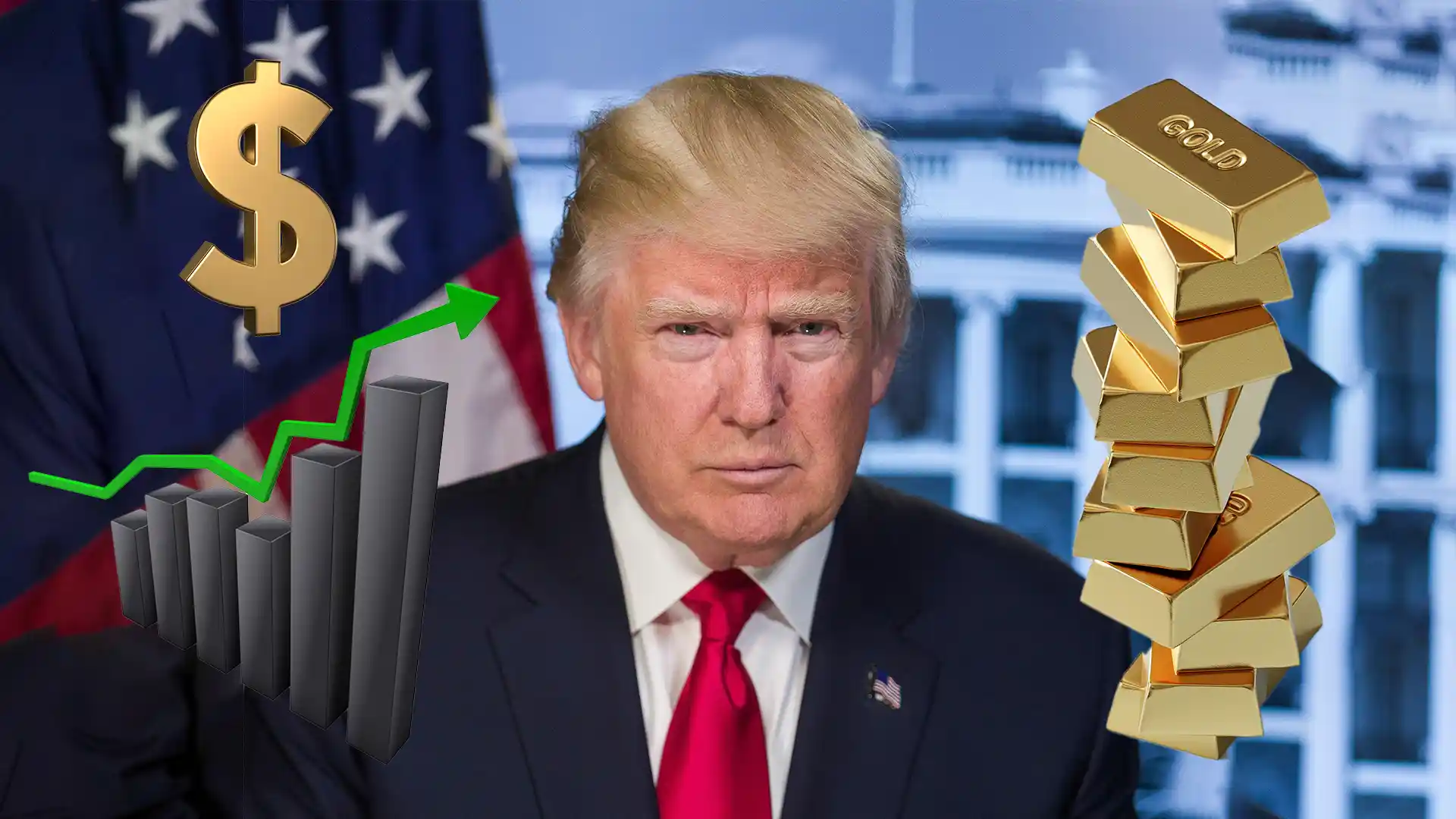Table of contents
Gold Price News: Downward movement despite ongoing geopolitical tensions
Dr. Mathias Kunze
Senior Consultant in Commercial and Tax Law
6 min.
Published on: 12.12.2024 | 22:12 UTC

Today's gold price and important market developments from 12.12.2024 in the live ticker
Source: ChatGPT (OpenAI)
Gold price under pressure: USD 2,680 per troy ounce despite geopolitical uncertainties
The price of gold is showing a slight downward movement today to USD 2,680 per troy ounce. Macroeconomic factors such as the strong US dollar and expectations regarding future monetary policy are weighing on the market, while geopolitical tensions continue to have a supportive effect. In particular, the escalations in Syria and Ukraine and the diplomatic tensions between Russia and the West remain important influencing factors.
NATO Secretary General Rutte calls for a war mentality
In a keynote speech, NATO Secretary General Mark Rutte has issued an urgent warning of a possible long-term confrontation with Russia. Although there is no immediate threat from Russia, Moscow is preparing for a “long-term confrontation” with Ukraine and NATO, Rutte said. He called on the NATO allies to significantly increase their defense spending and display a “war mentality”. In view of Russia's growing military potential, he emphasized that NATO must prepare more intensively in order to prevent a possible “major war” on its territory.
Trump warns against escalation: No US missiles against Russia
US President-elect Donald Trump has spoken out clearly against the use of long-range US missiles against targets in Russia. In an interview with Time magazine, he sharply criticized the fact that such attacks would further escalate the conflict. “We are only escalating this war and making it worse,” Trump explained. His comments come amid growing tensions between Russia and the West. While Ukraine is hoping for military support from the USA, Trump's stance suggests that he could take a less interventionist course. Observers see these statements as a signal of a possible change in US foreign policy under his presidency.
Ukrainian drone injures four police officers in Chechnya
In the Chechen capital Grozny, a Ukrainian drone attack has damaged a police building and slightly injured four police officers. According to Chechen leader Ramzan Kadyrov, the drone exploded in mid-air, with debris damaging the roof and windows of the building. Kadyrov announced a harsh retaliation and declared that he wanted to “kill 400 Ukrainians, accomplices of NATO”. The attack is already the third drone strike on Chechen territory since the start of the Russian offensive. Observers see this as a further escalation of the conflict, which is increasingly spreading into Russian territory.
China and Russia strengthen strategic alliance
During a meeting with Russian Security Council Vice President Dmitry Medvedev, China's President Xi Jinping reaffirmed the close strategic coordination between the two countries. China is willing to intensify cooperation with Russia in multilateral forums and jointly shape its global leadership role, Xi said. The partnership between the two nations has deepened significantly since the start of the war in Ukraine, particularly in the economic and political sphere. Xi also emphasized the importance of a consensus with friendly states, particularly in the global South, in order to promote a balanced international order. Experts see this cooperation as a growing countervailing power to Western-style alliances.
Syria: Transitional government suspends constitution
The new Syrian transitional government has suspended the constitution for three months and dissolved parliament. According to Obaida Arnaut, spokesperson for political affairs, a legal and human rights committee will review the existing constitution and make amendments during this time. The aim should be to establish a constitutional state after decades of Assad rule. At the same time, transitional ministers and representatives of the old Assad government are to complete the handover of power next week. In addition, the leader of the Islamist militia Haiat Tahrir al-Sham (HTS) announced the dissolution of the Assad security apparatus. International observers and the UN are now calling for the release of people unlawfully detained in Assad prisons to be accelerated.
Israel destroys Syria's air defense systems and strategic weapons
According to the Israeli army, it has destroyed more than 90 percent of Syria's surface-to-air missiles in recent days. These missiles were used to intercept enemy projectiles and were considered one of the most powerful air defense systems in the Middle East. In addition to the air defense systems, other strategic weapons such as ground-to-ground missiles and drones were also severely damaged. Israel justified the attacks with the danger that these military capacities could fall into the hands of Islamist militias, which have gained influence following the fall of the Assad regime. International criticism of the airstrikes remains, however, as observers see possible violations of international law. The Israeli army, on the other hand, described the attacks as an important step towards securing regional stability.
Blinken calls for inclusive government for Syria
US Secretary of State Antony Blinken has arrived in Jordan to discuss the future of Syria with King Abdullah II and other regional representatives. Blinken emphasized that Syria needs an inclusive transitional government that includes all social groups and protects the country from the emergence of new terrorist structures. According to the US State Department, cooperation between the G7 states should also be geared towards providing credible support for the transition process in Syria. Following the talks, Blinken will travel to Ankara, where the recent Turkish attacks in Kurdish-controlled north-eastern Syria are also expected to be a key topic.
Technical analysis: Gold price stabilizes at USD 2,680
The price of gold is hovering at USD 2,680 per troy ounce today, showing a slight downward trend compared to the last few days. This trend is being influenced in particular by the continued strength of the US dollar, which is making gold more expensive for buyers outside the US and curbing demand. From a technical perspective, the market is in a phase of consolidation. The Relative Strength Index (RSI) is just below the 50 mark, which indicates a neutral market situation. The Moving Average Convergence Divergence (MACD) shows no clear signals and points to a possible continuation of the sideways movement. Important support levels are at USD 2,670, while a break above USD 2,700 could provide fresh impetus. Analysts are keeping a close eye on the market, as external geopolitical events such as developments in Syria or Ukraine could continue to trigger unforeseen fluctuations.
Market outlook: Geopolitical risks and a strong dollar continue to shape sentiment
At USD 2,680 per troy ounce, the price of gold remains caught between geopolitical risks and the strength of the US dollar. While uncertainties in the Middle East, warnings from NATO and increasing tensions between Russia and the West could continue to support demand for gold as a safe haven investment, the strong dollar is dampening the upside potential.
In the short term, the market remains sensitive to developments in the Syrian conflict and the growing strategic alliance between Russia and China. Both factors could further increase geopolitical tensions and have a positive impact on the gold price. At the same time, the attitude of US President-elect Donald Trump towards Russia and Ukraine is being closely monitored, as possible political changes of course could move the markets.
In the long term, the gold price remains dependent on global macroeconomic factors. If the US dollar loses strength or demand from Asia continues to rise, new highs could be within reach. Investors should remain vigilant, as both geopolitical and economic stimuli could be decisive in the coming weeks.
Dr. Mathias Kunze
Senior Consultant in Commercial and Tax Law
Blog

All-time high: Gold price breaks through USD 3,000 for the first time

Gold in industry: A detailed analysis of its interactions with halogens and in cyanide solutions







